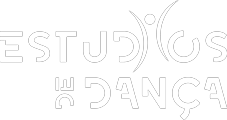Ações na Rua / Street action
Rota da Desorientação
[PT]
A orientação pressupõe um rumo, uma posição clara em relação ao que nos rodeia. Porém, tal como aquela ação infantil de girar à volta, sentindo o mundo girar connosco, para depois se deixar cair no chão, também o questionamento propõe uma experiência de desorientação, abrindo o (re)conhecimento. Este propósito de desorientação ou, pelo menos, de questionar a orientação é algo intrínseco à dramaturgia da performance de dança. Também o performer gira em todas as direções, ou se vira de cabeça para baixo, ou se torce e contorce, ou joga com o desequilíbrio. Ele brinca com a sua orientação na relação com o mundo, questionando-o. O acto performativo surge numa procura de novos sentidos perceptivos, provocando uma desorientação dos sentidos habituais. Na desorientação perdemos as nossas referências, largamos preconcepções, perdemo-nos e nesse vazio descobrimos outro modo de conhecer.
Nesta caminhada/workshop propomos explorar uma dramaturgia da desorientação tendo a cidade de Lisboa como palco.
Como será experienciar a cidade de Lisboa – as suas ruas, os seus traços arquitetónicos, as suas referências históricas, as suas gentes, os seus sons etc. – não através da caminhada quotidiana, do passeio turístico ou até do deambular em serendipidade, mas sim através do desafio da desorientação dos nossos modos perceptivos habituais? Que outros sentidos e (re)conhecimentos poderão surgir?
Três guias irão conduzir os participantes pelas ruas da cidade de Lisboa onde, através de explorações sensoriais, o grupo irá exercitar diversos jogos de desorientação. No fim, o material criado por cada um (como por ex. escrita associativa, desenhos, imagens, sons etc.) será partilhado por todos os participantes, funcionando como um ‘vestígio coletivo’ da experiência.
Esta caminhada/workshop resulta da colaboração intercultural e transdisciplinar entre artistas e investigadores de Portugal e do Brasil que, no âmbito do projeto TEPe, procuram contribuir para investigar: “que cidade é aquela que desejamos?”; “como pode a intervenção artística se tornar um agente de mudança da experiência citadina?”
---
[EN]
Orientation presupposes a direction, a clear position in relation to what surrounds us. However, just like the children's play of spinning, feeling the world spinning and then falling on the ground, the act of questioning also proposes an experience of disorientation and therefore opening our process of (re)cognition. This purpose of disorientation, or at least of questioning our orientation, is intrinsic to the dramaturgy of dance performances. Also, the performer spins in all directions, or turns upside down, or twists and contorts, or plays with unbalance. He plays with his orientation towards the world, questioning it. The performative act arises in a search for new perceptive senses, provoking a disorientation of the habitual senses. In disorientation we lose our references, we leave our preconceptions aside, we lose ourselves and, in that emptiness, we discover another way of (re)cognizing as another way of knowing.
In this walk/workshop we propose to explore a disorientation dramaturgy having Lisbon as our stage.
What would it be like to experience the city of Lisbon – its streets, its architectural features, its historical references, its people, its sounds etc. – not through a daily walk, a tourist walk or even a serendipitous walk, but through the challenge of disorienting our usual perceptive modes? What other senses and (re)knowledge could emerge?
Three guides will lead the participants through the streets of Lisbon where, through sensorial explorations, the group will play disorientation games. At the end, the material created by each one (such as associative writing, drawings, images, sounds etc.) will be shared by all participants, functioning as a ‘collective trace’ of the experience.
This walk/workshop results from the intercultural and transdisciplinary collaboration between Portuguese and Brazilian artists and researchers who, within the TEPe project, seek to contribute to the investigation about: “how is the city that we seek?”; “how can artistic intervention become an agent of change in the experience of the city”?
Allan Diniz (UFC), Cecília de Lima (INET-md FMH | Universidade de Lisboa), Ivani Santana (UFBA), Thaís Gonçalves (UFC), Thembi Rosa (FCSH – ICNOVA)
[PT]
Allan Diniz é Artista audiovisual, fotógrafo e jornalista. Mestre em Comunicação – Fotografia e Audiovisual (UFC-Brasil).
Cecília de Lima é coreógrafa, docente e investigadora (Instituto de Etnomusicologia – centro de estudos em música e dança, polo da Faculdade de Motricidade Humana, Universidade de Lisboa, Portugal).
Ivani Santana é coreógrafa, docente e investigadora (Universidade Federal da Bahia, Instituto de Humanidades Artes e Ciências Prof. Milton Santos).
Thaís Gonçalves é docente e investigadora (Universidade Federal do Ceará).
Thembi Rosa é dançarina, coreógrafa e pesquisadora (FCSH – ICNOVA, Universidade NOVA de Lisboa, grupo de Performance & Cognição).
---
[EN]
Allan Diniz is an audio-visual artist, photographer and journalist. He has a Master of Arts in Communication – Photography and Audiovisual (UFC-Brazil).
Cecília de Lima is a choreographer, teacher and researcher (Institute of Ethnomusicology – Centre of Studies in Music and Dance, Faculty of Human Motricity, University of Lisbon, Portugal).
Ivani Santana is choreographer, teacher and researcher (Federal University of Bahia, Institute for Humanities, Arts and Sciences, Prof. Milton Santos).
Thaís Gonçalves is a teacher and researcher (Federal University of Ceará);
Thembi Rosa is a dancer, choreographer and researcher (FCSH - ICNOVA, Universidade NOVA de Lisboa, Performance & Cognition group).
Duração total do evento / Estimated time
1h20
Informaçao útil: Trazer bloco de notas e lápis ou caneta.
Useful info: Bring a notebook, and pen or pencil
Participantes / Participants
Máx 10 - Inscrição obrigatória / Registration required
Dados móveis / Mobile data
Não / No
Idioma /Language
Português / English
Local de encontro / Meeting Point
Largo do Carmo
